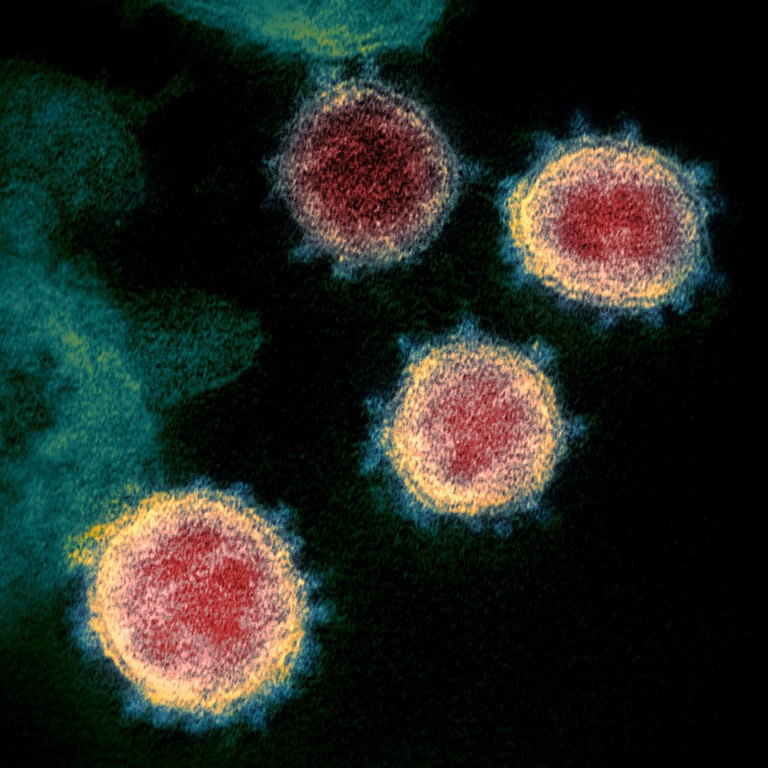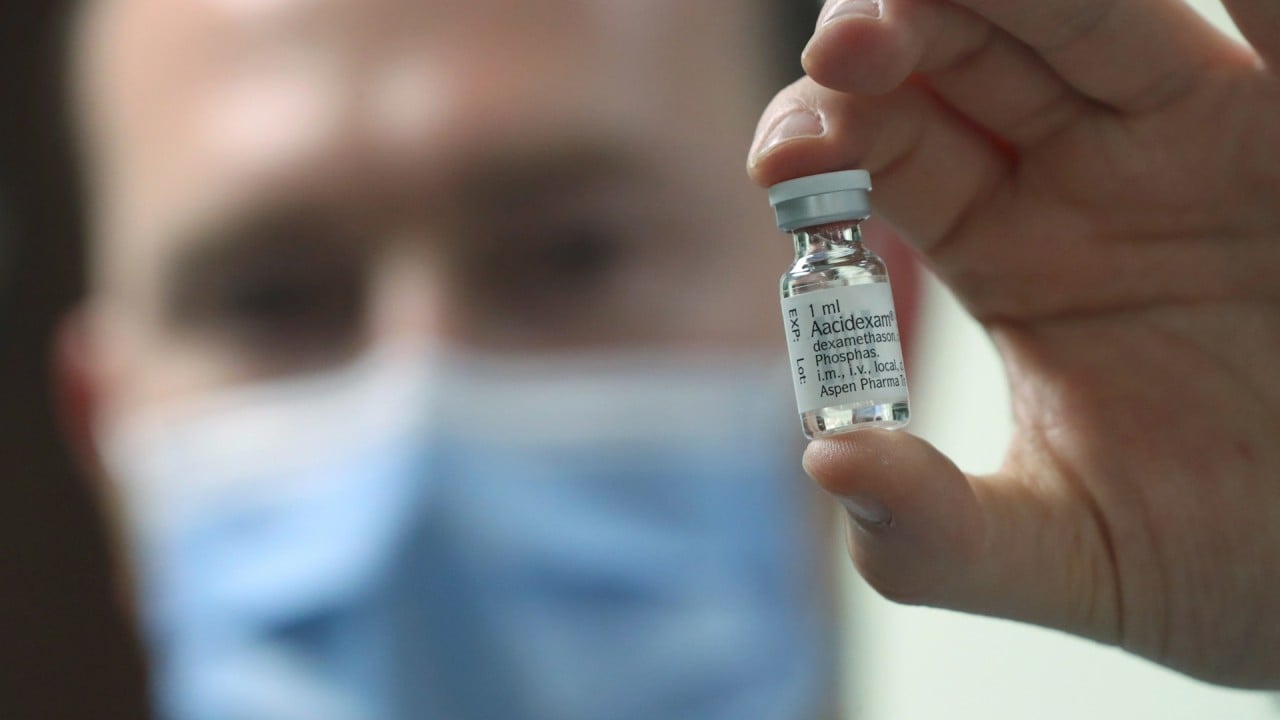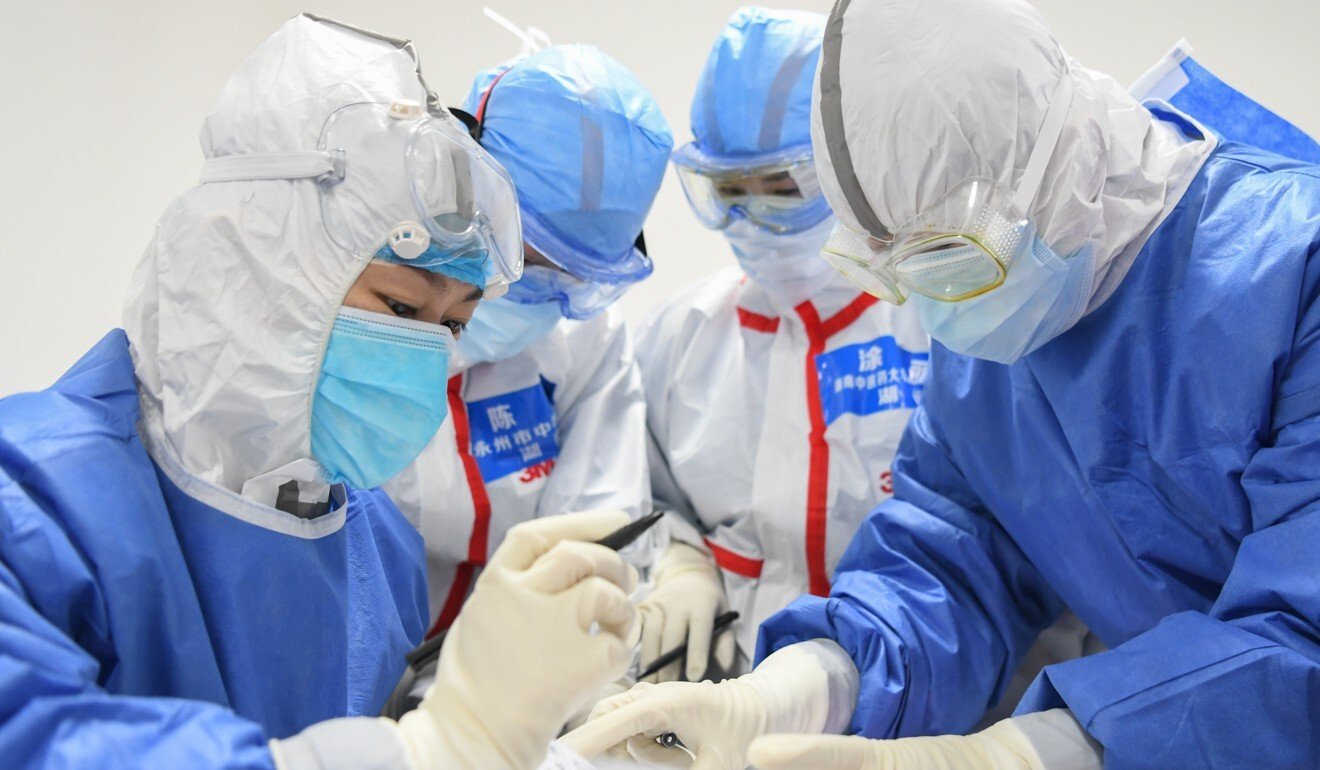
There may be no immunity against Covid-19, new Wuhan study suggests
- Researchers behind the non-peer-reviewed paper ran antibody tests on samples from hospital workers who were exposed to infected patients at early stage of outbreak
- Only 4 per cent of 23,000 had antibodies – but they estimated at least 25 per cent could have contracted the disease
Their conclusion was based on a study looking at whether hospital workers in Wuhan who were directly exposed to infected patients at the early stage of the outbreak had developed antibodies. The deadly new disease was first detected in the Chinese city late last year.
At least a quarter of the more than 23,000 samples tested could have been infected with the virus at some stage, according to the scientists. But only 4 per cent had developed antibodies as of April.
“People are unlikely to produce long-lasting protective antibodies against this virus,” the researchers concluded in a non-peer-reviewed paper posted on preprint website medRxiv.org on Tuesday.
Many efforts to fight the pandemic are being done on the assumption that people who have had Covid-19 will produce antibodies that will protect them from reinfection. Those efforts include countries considering issuing “immune certificates”, the over 100 potential vaccines in development, and recovered patients being encouraged to give blood for experimental drugs and therapies.
But the new research in Wuhan suggested not everyone infected was producing antibodies, or producing long-lasting ones. Antibodies are the molecules generated by the immune system to bind with the virus spike protein and stop it from infecting cells. Some, like immunoglobulin G, or IgG, can remain in the system for a long time – it has been found in severe acute respiratory (Sars) patients 12 years after they were infected.

01:04
A generic steroid helps save lives of coronavirus patients, Oxford trial finds
Led by Wang Xinhuan from Wuhan University’s Zhongnan Hospital and scientists from the University of Texas in Galveston, the study looked at samples from health care workers and general hospital staff in the city.
They found that 4 per cent of the health care workers and 4.6 per cent of general hospital staff had the IgG antibody.
Earlier research found that 2.5 per cent of hospital employees in Wuhan had contracted Covid-19 during the outbreak, but it has been estimated that the real proportion of infections among this group could be as high as 25 per cent.
Italian scientists develop model to show how solar radiation can kill the coronavirus
Some people have mild or no symptoms when they have the coronavirus that causes Covid-19, and may not even know they have it. And with human-to-human transmission not confirmed until late January, many doctors and nurses in Wuhan were not wearing extra protective gear to treat patients.
“They just got infected with Sars-CoV-2 and fought off the virus with their own immune systems,” according to Wang and his team, using the clinical name for the coronavirus.

Patients with confirmed infections, where the symptoms were usually more obvious, tended to produce more antibodies, according to the researchers. An earlier study found all confirmed cases they looked at had developed the IgG antibody two weeks after the disease onset.
Wang’s team also suggested that more than 10 per cent of the people in their study may have lost antibody protection within a month or so.
“Our findings have important implications for herd immunity, antibody-based therapeutics, public health strategies, and vaccine development,” they said.
Based on their research, they said antibody tests may not be enough to tell whether someone had been infected, and the presence of antibodies like IgG may not necessarily provide immunity later.
“The idea of an immune certificate for recovered Covid-19 patients is invalid,” Wang wrote.
Meanwhile, a separate study by a team at Tsinghua University in Beijing suggested that the more antibodies produced by Covid-19 patients, the worse the outcome – the patient with the strongest antibody response in their study died.
They pointed to a phenomenon known as antibody-dependent enhancement, in which viruses “hitch a ride” on an antibody to infect cells they could not enter otherwise.
Wang said that was “a big concern to be closely monitored”.
Cat drug shows promise against coronavirus in lab tests, Chinese researchers say
But Wu Yingsong, director of antibody engineering research at the Southern Medical University in Guangzhou, said the Wuhan study should be treated with caution. He noted that most antibody tests only checked for a couple of antibodies to save time and cost – and that could mean false results.
“There are still a lot of fundamental things about the coronavirus we don’t understand,” he said.

